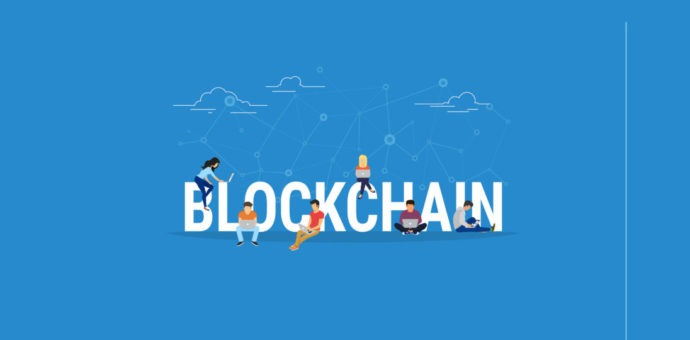Blockchain holds the potential to transform the banking and financial sectors, reducing potential costs and labor savings, according to Mayank Pratap, co-founder of startup solutions company Engineer Babu. According to a PwC report, 24% of financial executives around the world are very familiar with the technology. Americans are significantly more familiar than those in other regions.
Numerous international transfers occurs daily. This makes the global financial system one of the sectors that could most benefit from the blockchain application. Currently operating on highly dependent manual networks, the banking and financial sector is prone to error and fraud.
According to the Harvard Business Review, the blockchain will make banks what the internet has done to the media. When it comes to banks and financial organizations, this technology has the potential to solve many problems. For it has all the characteristics necessary to be used reliably in financial transactions – it is secure, decentralized, transparent and relatively cheap.
The technology offers a high level of security and protection for data exchange, information, and money. It also enables users to leverage transparent network infrastructure along with lower operational costs with the help of decentralization. That’s why these features make blockchain a reliable, promising an on-demand solution for the banking and financial industry.
Big names like JP Morgan Chase are already betting on crypto technology. Besides him, the Bank of America filed a patent that describes the implementation of a blockchain to protect records as well as to authenticate business and personal data. Goldman Sachs is also involved in technology research and support with the Circle project.
Blockchain security
Involving money in any situation leads to increased chances of fraudulent activity. More than 40% of financial institutions and intermediaries, including providers of money transfer services, as well as stock exchanges, are susceptible to crime-related losses annually. This is because they use centralized database systems.
The blockchain, totally decentralized, is very difficult to be corrupted. Exactly because of the distributed architecture, there is no chance of a single point of vulnerability. All blocks are interconnected and, as a result, all other blocks will immediately show any change. That way, the hacker does not have time to track the violation. Therefore, the blockchain has the potential to eliminate cyber crimes in the banking and financial system.
Banks and financial institutions are strictly concerned about the increasing costs they have to bear to comply with anti money laundering guidelines and to know who their client is (AML and KYC). According to a Thomson Reuters poll, the total estimated spending in these cases ranges from US$ 60 million to US$ 500 million per year.
With the adoption of a blockchain system, independent verification of each customer by a bank or financial organization would be accessible to other banks. Therefore, isn’t
In an article published in Medium, Pratap summarizes four main reasons why the banking system should adopt this technology:
Decentralization
Today’s banking systems are highly dependent on outdated paper and processes. They demand reliable technology that can withstand fraud, scalability, and security issues. A blockchain and its decentralized nature can solve this problem.
Agility
Banks cannot be termed as self-sufficient entities since any transactions made through them still involve intermediaries. Besides, an international transfer can take up to 5 days, along with the risks and high costs involved. With a blockchain system installed, banks would be able to make transfers quickly, without having to shoulder the burden of risk.
Scalability
The world is becoming digital and with this progress, even small transactions and payments are happening digitally. The level of economic activity is increasing and there is no doubt that it will continue this way. Blockchain technology will make small transfers viable and fast, along with the help of lower fees and scalability of transactions.
Costs
Other financial services other than banks are constantly evolving their systems with the help of the latest technology in order to protect the markets by offering economically available services at cheaper rates. Banking institutions and other financial institutions should also be in this process to secure their place in the ecosystem.







